Kaspersky Adaptive Online Training
General description
The Kaspersky Adaptive Online Training (KAOT) program is a training course based on adaptive learning principles. Adaptive learning is an educational method that adapts the learning process to the capabilities, knowledge and confidence of users. KAOT constantly analyzes user knowledge of the subject and changes the learning trajectory depending on what information they currently need. Today, the course includes 9 topics:
- Passwords and Accounts
- Web Browsing
- Social Networks & Messengers
- PC Security
- Mobile Devices
- Protecting Confidential Data
- GDPR
- Personal Data
The platform is multilingual and currently available in 7 languages: English, German, French, Italian, Spanish, Arabic and Turkish (and this list continues to grow). Platform localizations take into account the cultural nuances of each region, so the content isn’t a word-for-word translation, it’s a full adaptation that also includes text and images.
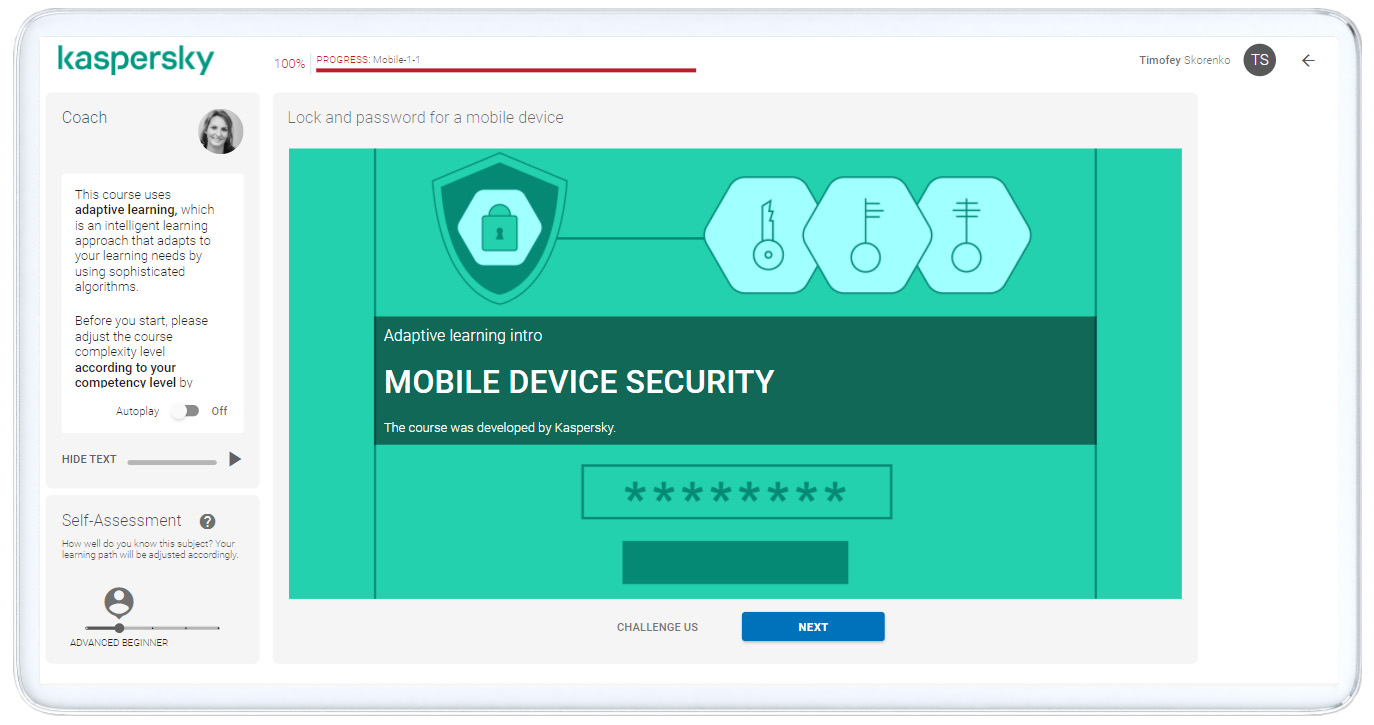
Each topic consists of 10-15 lessons broken down into four difficulty levels. Each lesson is presented as interactive slides (training or testing) focusing on a specific aspect of the topic.
The total volume of material on the KAOT platform is around 450,000 words.
My role on the KAOT team
General management of content development
Since October 2019, I’ve been leading the KAOT content development team.
Lessons
I personally wrote the following topics for the platform:
- Passwords and Accounts — 11 lessons;
- Social Networks & Messengers — 14 lessons;
- PC Security — 12 lessons;
- Mobile Devices — 16 lessons;
- GDPR — 10 lessons;
- Personal Data — 13 lessons.
I also oversaw the development of the “Email, Websites and the Internet” and “Confidential Information” topics, and handled the scientific and literary editing of all platform topics.
Platform interface editing
KAOT is based on the Area9 Lyceum adaptive learning platform. I edited the platform’s interface text for the Russian localization, and my editing is also used in other Area9 Lyceum projects.
Training materials
Every KAOT lessons consists of 20-40 slides. Some of the slides include theory, and others check how well trainees absorbed the theory. Thus, the system doesn’t test after completing a module or level, but rather assesses knowledge during the learning process. The system corrects the learning program based on trainee knowledge and the degree of confidence in their answers.
Theory slide examples:
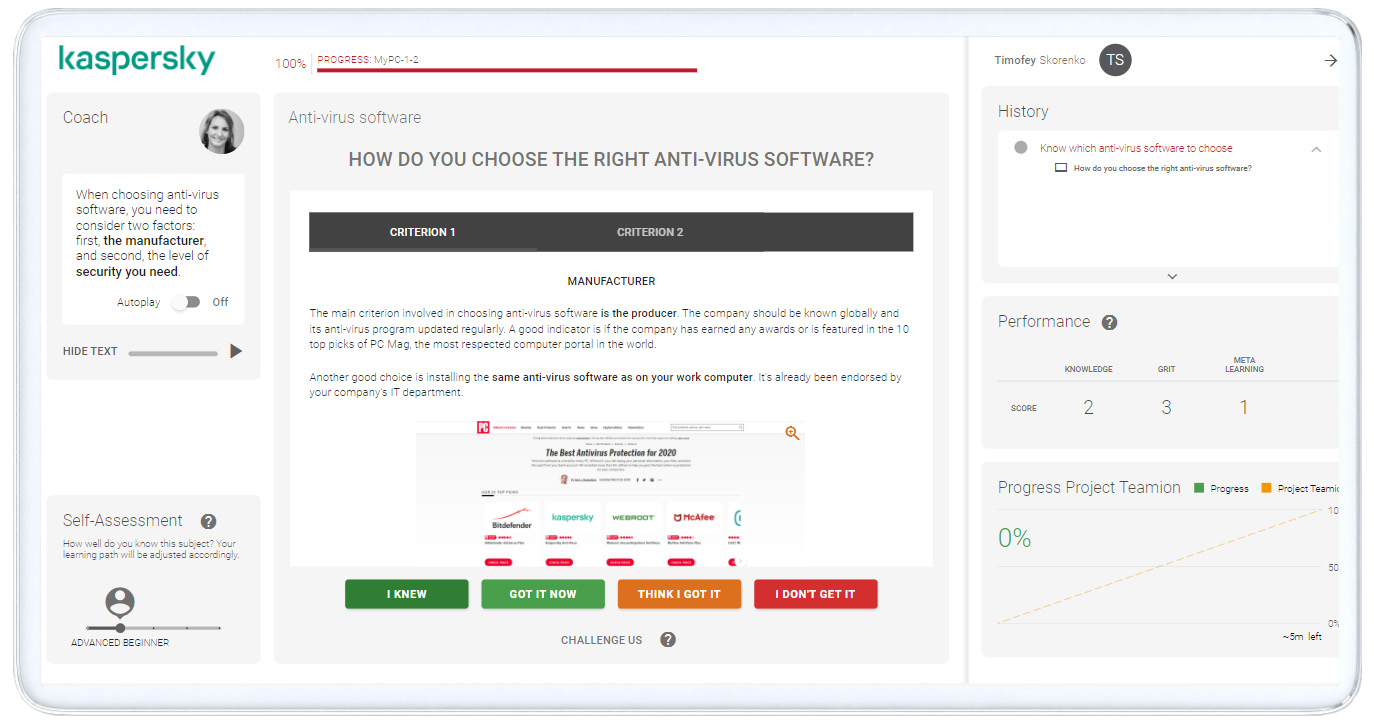
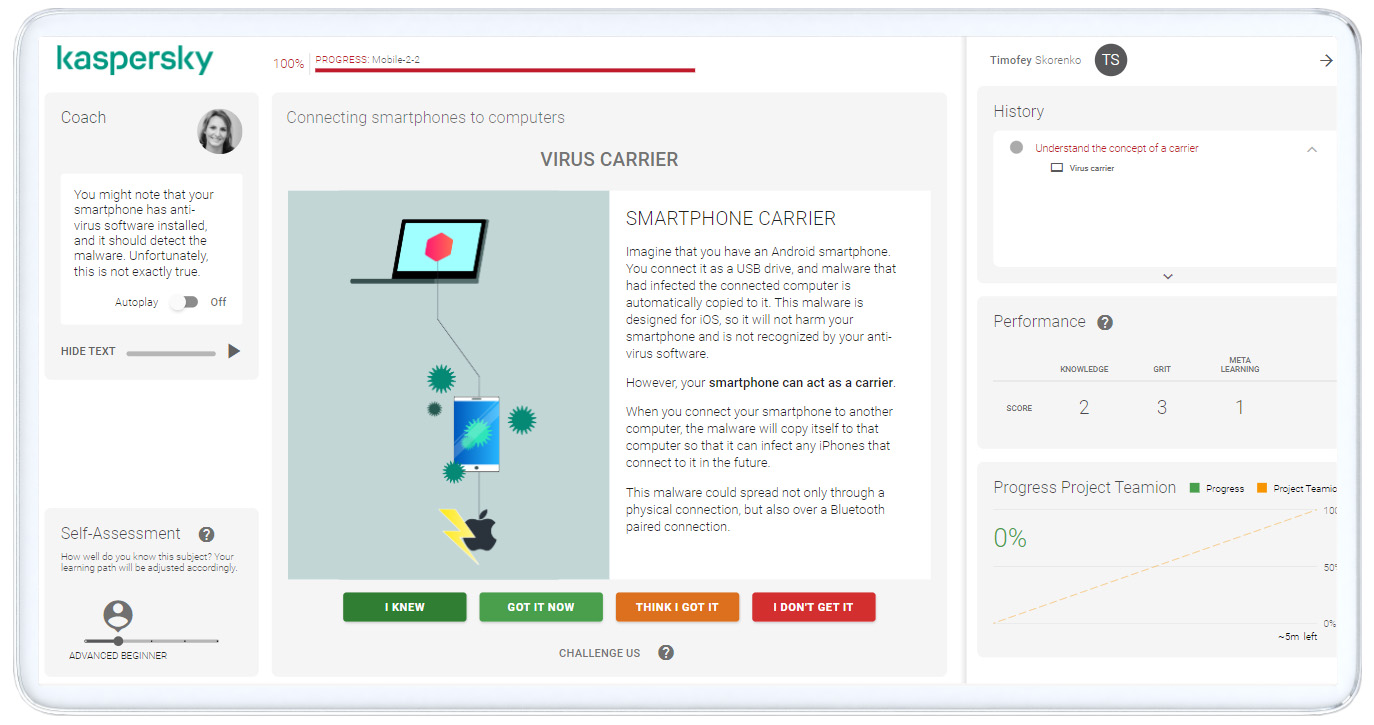
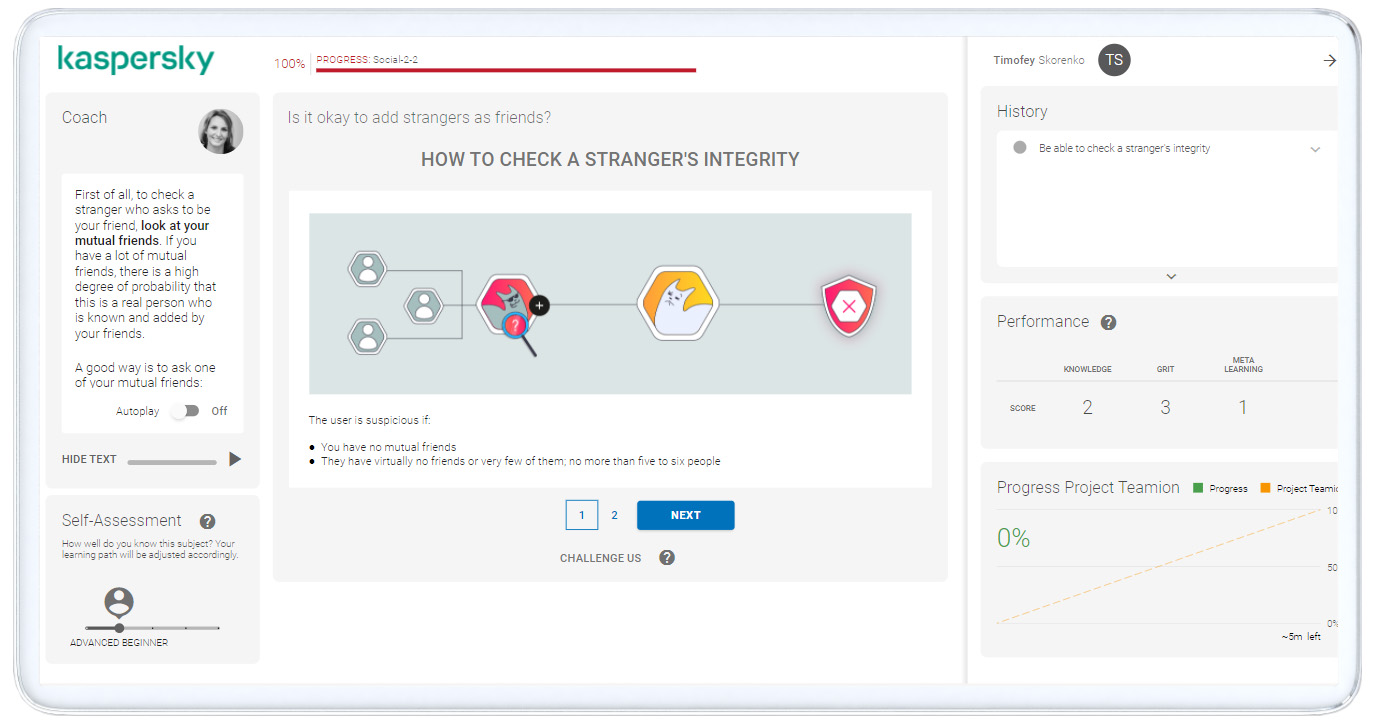
Slide examples with various types of questions:
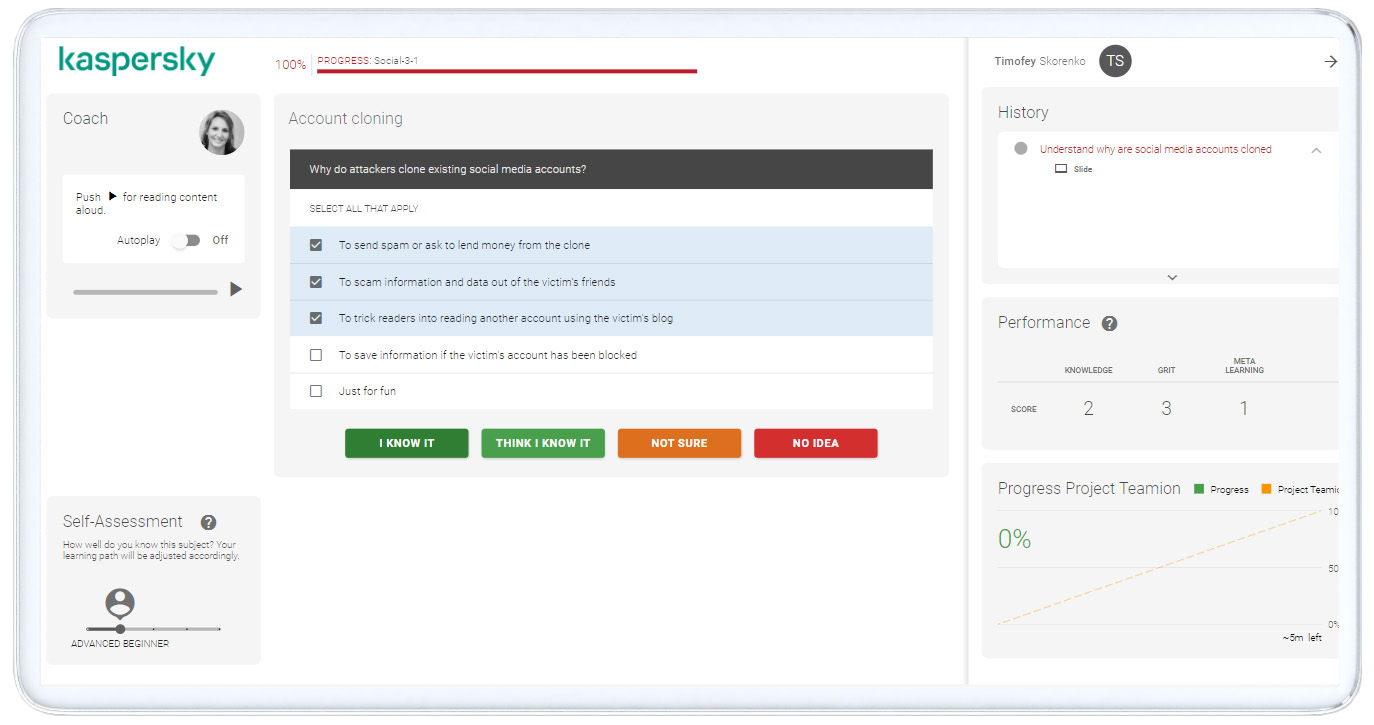
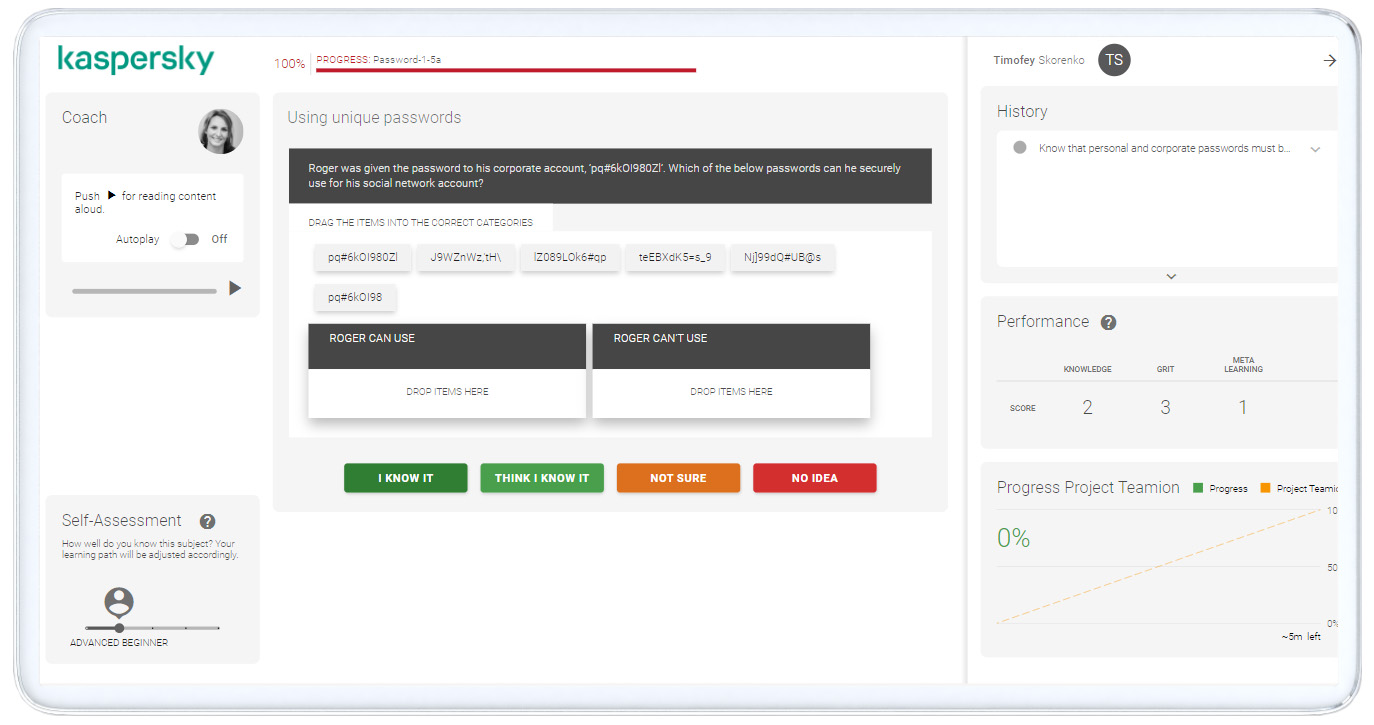
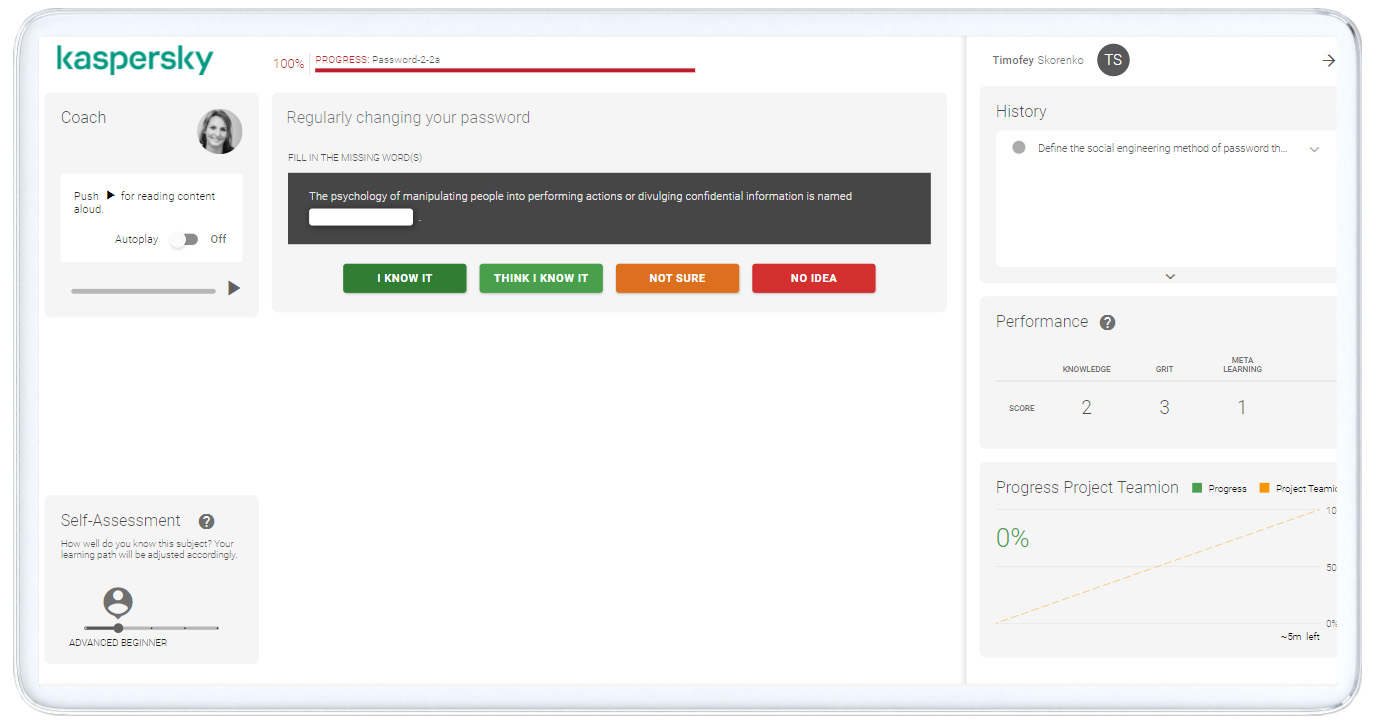
Feedback slide example:
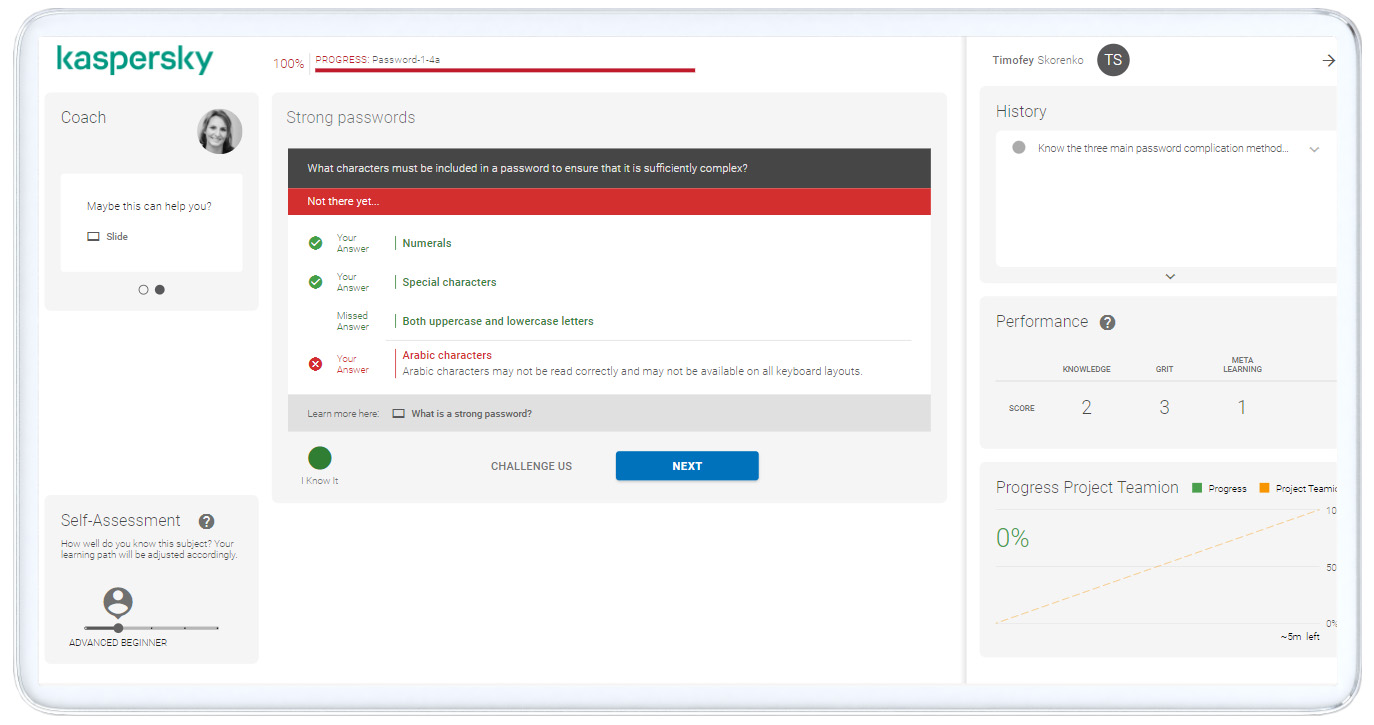
Lessons include a large number of examples:

In addition to KAOT, I’ve also implemented several more local projects on the Area9 platform.